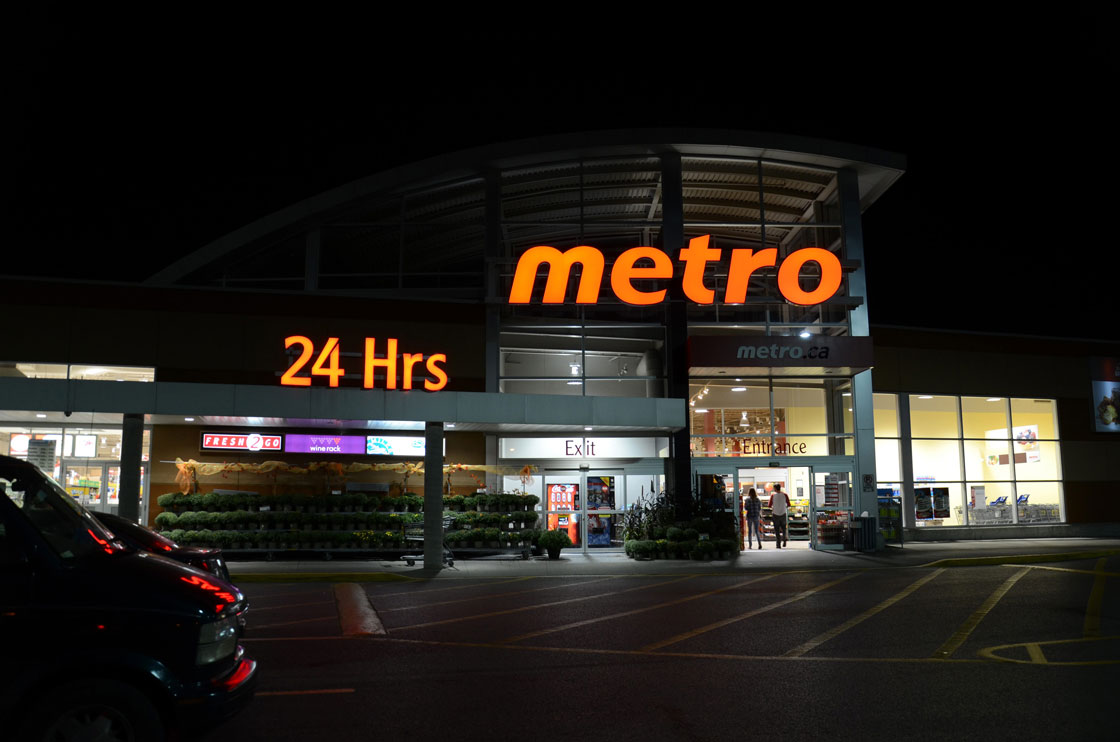MONTREAL – Supermarket chain Metro says prices for some products could continue to creep higher in the coming months because of the lower Canadian dollar, energy price increases and rising minimum wages.

During the second quarter, the Montreal-based company’s sales benefited from a 0.25 per cent increase in prices, the first in a year, that was below the consumer price index.
Overall sales grew 1.7 per cent to $2.55 billion as same-store sales — a key retail measure of sales for stores open at least a year — increased by one per cent.
Sticker shock and competitive pressures prevented the company from fully passing on higher costs for some meat and produce to consumers.
Metro CEO Eric La Fleche said inflationary pressures, especially from currency, could also eventually push packaged goods suppliers to hike their costs as well.
“We’re not getting undue pressure from our suppliers at this stage, but if the trend continues that could happen,” he said Wednesday during a conference call about its second-quarter results.
Metro (TSX:MRU) beat expectations as it earned $96.9 million for the period ended March 15. That was down from $362.7 million a year ago when Metro had a $266.4 million gain from the partial sale of its investment in convenience store chain Alimentation Couche-Tard (TSX:ATD.B).
Adjusted earnings from continuing operations were $1.07 per share, up from 98 cents per share ($96.4 million) last year and five cents per share above analyst estimates.

Get weekly money news
La Fleche said the 75 cents per hour increase in Ontario’s minimum wage to $11 as of June 1 will add further pressures even though wages for much of its unionized workforce is regulated by collective agreements. Quebec’s minimum wage is set to increase by 20 cents per hour to $10.35 as of May 1.
“Similar to other food players in the industry and our suppliers and the supply chain in general, this minimum wage increase will have an impact and could perhaps put some food retail inflation pressures down road,” he told analysts.
La Fleche said he’s encouraged by the increased sales and 9.2 per cent increase in adjusted EPS in the quarter, which are “solid results in a very competitive environment and at times unusually challenging weather conditions.”
While some stores were affected early in the quarter by extreme weather, the overall impact wasn’t as bad as it expected, he added.
Metro said sales are also helped by its in-stock guarantee at discount banner Food Basics, improved fresh food offering, greater focus on healthy products, loyalty program and a new upscale store concept that will be expanded to more than a dozen stores this year in Quebec and Ontario.
Irene Nattel of RBC Capital Markets said higher prices were “creeping into the system,” reversing decreases of 0.5 per cent, 1.8 per cent and 0.9 per cent in the prior three quarters.
“We note that virtually all retailers are seeing negative traffic as consumers shopping less frequently to save on gas but buying more per visit,” she wrote in a report.
In January, Metro raised its quarterly dividend 20 per cent and increased the number of shares it can purchase over the next year through a normal course issuer bid by nearly 17 per cent to seven million.
The company now pays a quarterly dividend of 30 cents per share, up from 25 cents. The payout ratio is 24 per cent. It also raised its dividend target by five percentage points to 25 per cent of net income from the previous year, excluding non-recurring items.
On the Toronto Stock Exchange, Metro’s shares rose $1.32, or 2.05 per cent, at $65.60 in midday trading.
Metro faces heightened competition, particularly in Ontario, from supermarket rivals such as Loblaws (TSX:L) and Sobeys (TSX:EMP), while its discount banner Food Basics is fending off expansion by Walmart (NYSE:TGT) which now has 26 supercentres in Quebec, and the first wave of openings by U.S. retailer Target
Follow @RossMarowits on Twitter.





Comments